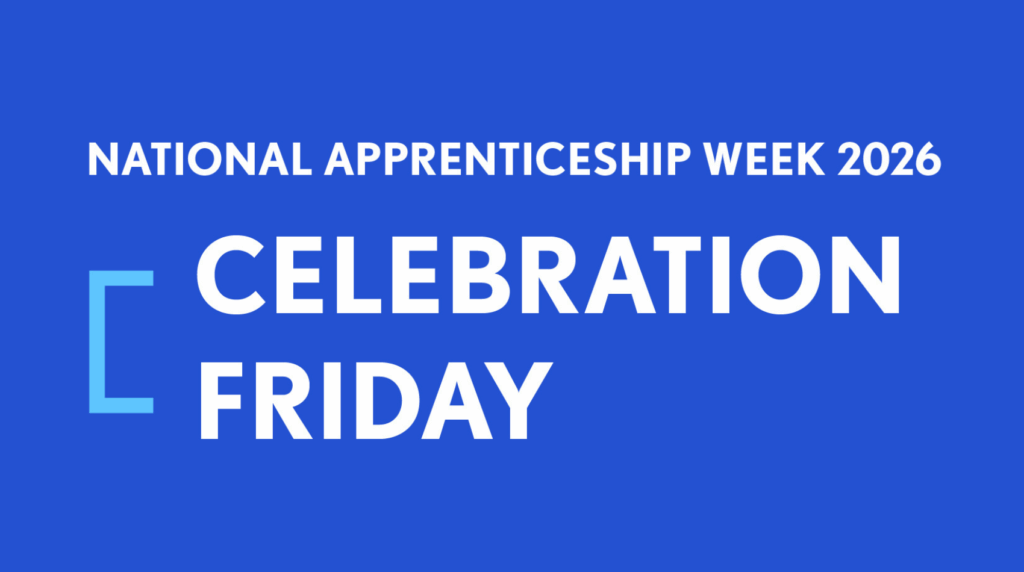Management, People - 4 Minute Read
Common apprenticeship myths and why they aren’t to be believed.
Andrew Steel,
IT, Website & Marketing Manager
5th August 2020
Have you ever considered becoming an apprentice but heard something that put you off? Many rumours and myths are often circulated about apprenticeships and it can be hard to get the facts right.
We’ve put together a list of the most common apprenticeship myths so that we can shed some light on them and explain why they aren’t to be believed.

Myth 1. An apprenticeship is just for a 16 year old or a school leaver.
While an apprenticeship can be a fantastic route to take after finishing school, anybody can be an apprentice. As long as you are over 16 years old, you can enrol onto an apprenticeship. The average age of the apprentices that we train is actually 33 years old and we have learners who are much older! There are many apprentices across the nation of all ages. It’s never too late to develop your skills!
Myth 2. An apprentice won’t earn as much as a University graduate.
An apprentice might start at a lower wage, but they are earning while they are learning. By the time they have completed their apprenticeship, they will not only have a nationally recognised qualification, but also over a year of experience in the job. This is often more desirable to employers and many apprentices are quickly promoted after they have completed their course.
Not only does a university graduate need to pay off their student loan, they may also fail to find work in their chosen field due to lack of experience in the role. This is why an apprenticeship can be a much more reliable method of getting into a specific area of work.
Myth 3. An apprenticeship is only for manual worker industries.
This may indeed have been true in the past, however apprenticeships have now developed so that apprentices can develop their skills in hundreds of different occupations and industries. There are different levels of apprenticeships available for many industries such as Business Admin, Digital Marketing, Accounting, Management and many more. There will almost always be a suitable course for you to enrol onto regardless of your current level of experience.
Myth 4. An apprenticeship won’t lead to full time employment.
This is actually almost completely false. Statistics show that more than 90% of apprentices stay in employment after their course ends. It is common for apprentices to receive a promotion within 12 months of completing their course. Many apprentices choose to stay with the same employer after their course ends but it’s not as if they need to! You can easily move to another role with the skills, knowledge and qualifications that you have gained while on your course. You are now much more desirable to employers!
Myth 5. An apprenticeship is not a real job.
Apprentices are treated like any member of staff. They have responsibilities, tasks and complete projects and are considered a valued member of the team. This is an essential part of the apprenticeship as it is required so that they can evidence the skills and knowledge that they are learning. Without these responsibilities, they would not be able to complete and achieve their qualification.
The only difference between an apprentice and their colleagues is that an apprentice will be learning while they are working. This is done normal working hours and training is delivered on the job.
Myth 6. You can’t do an apprenticeship if you are in full time work already.
This is untrue. It doesn’t matter if you are new to the company, or have been an employee for the last 20 years. As long as you are in a suitable roll for the course that you would like to do, you can be enrolled as an apprentice. There are actually very few limiting factors when enrolling onto an apprenticeship. You can be any age and from any background to be eligible.
Myth 7. You need to spend a day a week at college to learn off the job.
This is not the case. While it is true that an apprenticeship does include 20% on the job training. This can be spread across your course. You are also able to use this time while at your usual workplace. As long as you are putting 20% of your time at work into learning new skills, we can use this learning for your apprenticeship.
Blog written by one of our Digital marketing Apprentices and Kiwi employees, Dan.

Employers
Read More
Individuals
Available Courses
International
Our Partnerships


